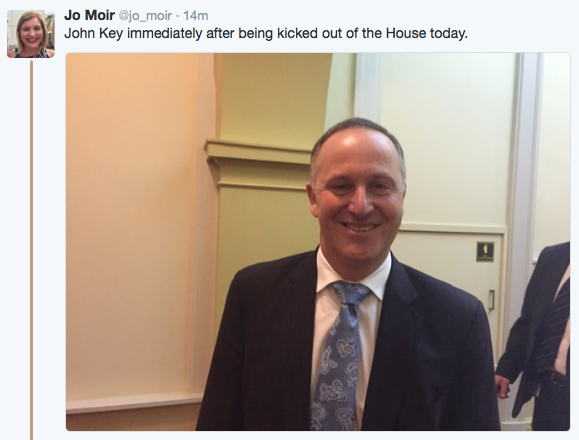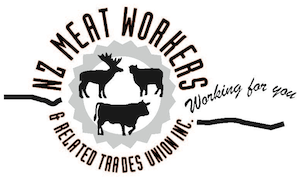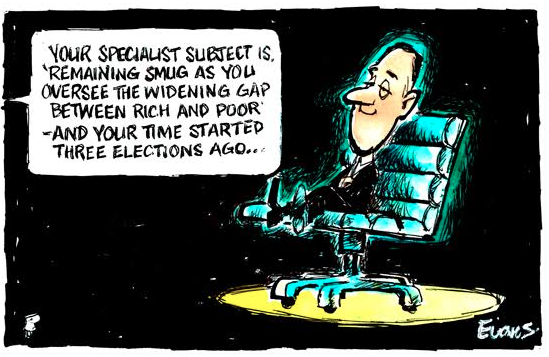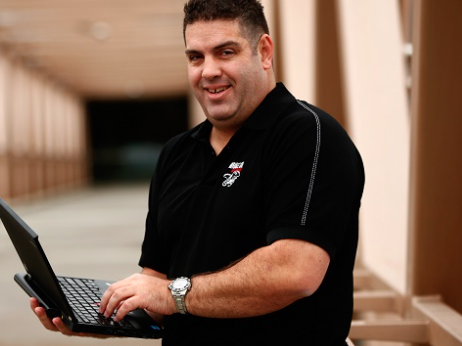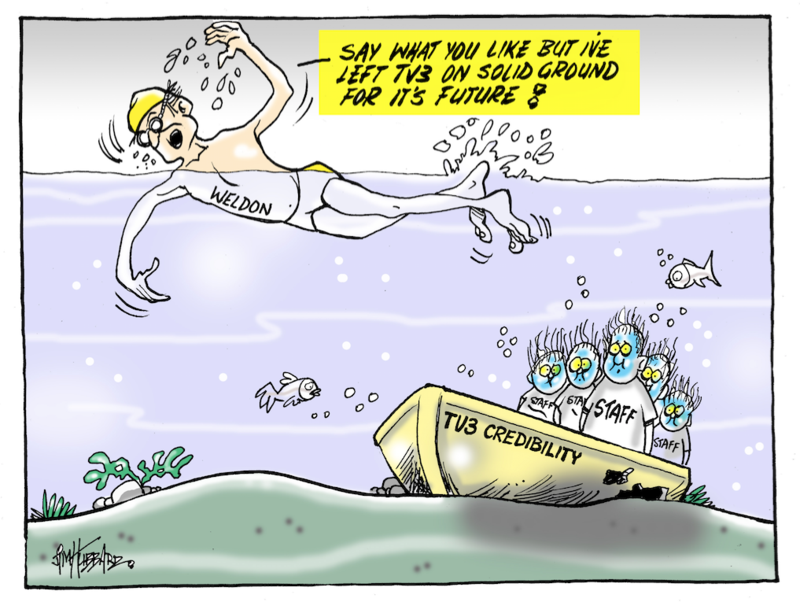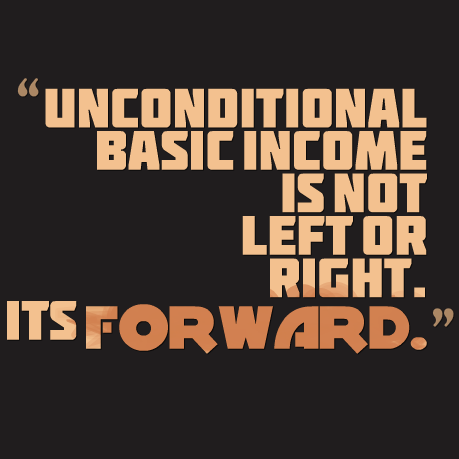
My political positions have been known to change like the wind over the years – alas, in the face of new information, I’ll U-turn like a drunk driver.
In fact there are only three positions that I can honestly say I have consistently held for as long as I’ve been aware of politics, without having ever wavered from them:
- The Police should be armed.
- Corporal punishment should be reintroduced to schools.
- The current tax and welfare system should be replaced with a Basic Income/Flat Tax (BIFT) system.
In recent weeks, one of these three positions has become the subject of public interest and debate, thanks to the effort of an ailing, flailing old political party in its death throes struggling to reinvent itself as relevant. (Sorry, fellow child-whackers – it’s the third one, Basic Income.)
The Universal Basic Income (UBI) debate is an issue which is very close to my heart: It is quite literally the reason I went to university (I wanted to research it to see if it was really viable) and is also one of the main reasons I got into politics.
So naturally, I felt a pang of near-physical pain when I saw just how much of a dog’s breakfast the Labour Party were making of this potentially revolutionary concept – and if this blog serves no other purpose, it would be to turn Labour’s dog’s breakfast into, perhaps, a serviceable breakfast for an extremely desperate human with no ability to taste anything.
What is a Basic Income?
There is a lot of misconception flying around at the moment about what exactly a Basic Income is.
It is known by many names – “Citizen’s Wage” was an ominous sounding one which Labour came out with this week, “Social Dividend”, “Universal Demogrant”, “Negative Taxation” and as one person I know understood it, “Free money, bro!”
At its most basic level, that’s what it is: It’s a certain amount of money transferred by the government to every citizen in the country. Rich, poor, man, woman, working or unemployed – you get this payment.
It’s not a new concept by any means – probably the best example is Alaska’s Permanent Fund, although this is only partially a basic income.
That sounds… kinda communist
One of the first objections I heard when Labour announced discussion over a proposed “citizen’s wage” was, before hearing what it is, “That sounds like communism to me!”
I have some good news for people of that persuasion: It’s far from communism.
While a “citizen’s wage” under a communist system presumably refers to the philosophy of “From each according to his ability to each according to his need” – and the fear being that a citizen’s wage would refer to everyone being paid the same regardless of the work they do, that’s absolutely not what a Basic Income is.
On the contrary, a Basic Income is designed to maximise individual freedom under the assumption that they will be partaking in a free market economy. (I’ll try not to cause any sore heads by going into Equitarian Capitalism versus Neoliberal Capitalism, but in terms of the means of production, Basic Income proponents are squarely on the side of capitalism, not socialism.)
In fact one of the most vocal proponents of Basic Income (which he referred to as “Negative Taxation”) was Milton Friedman – the economist whose views underpinned much of Thatcherism and Rogernomics. Even the arch-libertarian Friedrich Hayek made a few comments in support of the concept!
Okay, great, but… we can’t afford it, can we?
At the moment most of the debate around the issue centres around affordability – most people think it’s either too good to be true, or too expensive to be good.
Labour have quoted $11,000 per year (or $211 per week), which let me make clear is an outrageous sum of money, real pie-in-the-sky stuff here. A former Greens MP also suggested a $14,000 per year basic income, which at best confirms that Labour and the Greens have missed the point, and at worst confirms what I’ve been saying for years, which is that the Greens are absolutely stark-raving mad.
However, in spite of the scary numbers being thrown around by the left-wing parties, I would like to take this opportunity to blow your mind a little bit: We can afford it.
Not only can we afford it, but if we were to implement it today, it would be fiscally neutral. There would be no borrowing involved and no massive tax…. oh. Well, actually…
There is a catch.
Sorry, but there’s always a bloody catch – this one is not as bad as you might suspect though. In fact if you’re a right-winger it might even be a dream come true.
The catch is that a basic income system only works if you have a flat tax – but it’s not a low flat tax, like the ACT Party might advocate.
For this to work, we’re all going to be migrating to the top tax bracket of 33%. (Some of the early research suggested a 48% flat tax, so consider yourself lucky that Arthur Laffer’s infamous curve turned out to have some truth to it!)
However, 33% is much lower than the 55-60% number I’ve seen suggested by some critics, while the redistributive aspect of the system will mean that most individuals will still be better off in spite of the apparent tax hike.
Unfortunately, I’m not confident Labour understands this – after all, do you remember what happened to the last guy who tried to suggest a flat tax in a Labour government? (Incidentally, Roger Douglas’ 1987 mini-budget was supposed to include a guaranteed minimum income along with a flat tax – a system which is similar to basic income, but flawed for the same reason as targeted welfare.)
Where Labour have gone wrong
… concerning Basic Income. I could be here all day explaining all the other areas where Labour have gone wrong.
I’ve alluded to two of the things that Labour have got wrong above already: The first is that they don’t appear to understand that this system isn’t going to work under a progressive tax system – not only will it become too expensive, the benefits of the system will be lost.
If Labour try to implement their system under a progressive tax regime, you will find yourself in a ridiculous position where someone of John Key’s wealth is being flicked an extra $211 a week from the taxpayers – who, incidentally, will be leaving in droves due to the country being bankrupt.
The other thing they’ve got wrong of course is that a UBI is not supposed to be indexed to inflation, or to living costs – this is a dividend, not a benefit.
Instead it needs to be indexed to Gross National Income (GNI) – the better the economy is doing, the higher your Basic Income. The worse the economy is doing, the lower your UBI.
The $11,000 sum just isn’t going to fly – unless, to be fair, they intend to also implement Gareth Morgan’s proposed Comprehensive Capital Tax (CCT) – and considering that they campaigned on a capital gains tax the last two elections, this is a possibility.
I for one don’t support a CCT or CGT, but that’s simply because I’m of that old-fashioned school of thought where taxes and tax rises should be avoided where at all possible. My own calculations for a BIFT system at my ideal rate would even include cuts to GST and a small budget surplus.
But of course future debate would evolve once the system is implemented into a debate over the level of taxation and the level of Basic Income, and in that regard I err on the side of the more fiscally conservative no CGT, low GST side of the debate (with slightly less generous UBI).
Digression aside, I’m assuming Labour have considered neither a flat tax nor a CCT, in which case the likes of David Farrar are correct to assert that there is a $19 billion shortfall in funding, and you would need to either borrow or tax heavily to fund it.
It’s over 9000!
So what is the ideal rate for a UBI today? Well, based on our current GNI, budget and fiscal situation, I would recommend a UBI of approximately $9000, or $173 per week.
This is the magic number would be fiscally neutral, but still actually beneficial to people.
Not only that, but it’s low enough to stop Bill English fretting about it being a disincentive to work – you’re still going to need at the very least a part time job. (I’ll discuss this issue later if I get time.)
So why $9000 you ask? Well the short, and potentially mind-bending answer is… because that’s what we already pay people.
I know. It sounds crazy. But it’s the truth.
According to my own research we spend $6567.50 per person per year on social welfare (this figure includes National Superannuation, Working for Families Tax Credits and Paid Parental Leave. And that 50 cents at the end of the figure makes all the difference, I tell you!)
We also have a progressive tax system – which amounts to another, more indirect, kind of transfer of wealth (in fact before the 1930s, the ‘welfare’ system consisted almost entirely of lowering tax rates for the poor, as opposed to the direct cash transfers we have today.)
In fact, on the other end of the scale, our progressive tax system means that if you earn over $70,000 per year (i.e. are in the top marginal tax rate), your take-home earnings will be 67% of your income plus $9000 – this $9000 coming courtesy of the fact that you’re not taxed at the 33% rate until your 70,001st dollar.
This combination of welfare expenditure and progressive tax exemptions adds up to approximately $9000 per person, already being spent, today, here and now, while you read this.
Here’s the bad news: While if you’re earning above $70,000 per year, you’re getting your $9000 basic income in the form of a tax exemption, more than half of the people who earn less than $50,000 per year aren’t getting a bean – many of these being the people who need them beans the most.
Meanwhile there are others who are receiving considerably more than $9000 per year from the government.
Do we really need it?
The most important discussion to have around UBI is therefore not one of cost or plausibility but one of whether or not it’s necessary or desirable.
What’s wrong with our current system, what could a BIFT system do better and – most importantly of all – what are the pitfalls of a BIFT system and how do we avoid them?
I lean towards saying, yes, we should adopt this system if not now then certainly within the next decade. My reasoning for that is because technology, automation and even globalisation are changing the nature of productivity and making full employment an unattainable and unrealistic goal.
Increased productivity should benefit all of mankind – yet what’s the point of having machines which produce large quantities of, let’s say, food when the only people able to buy that food are the people who own those machines?
Labour is becoming irrelevant (pun not intended, although now that you mention it both meanings are true…), and yet our current welfare system and economic system assumes not only that full employment can be attained, but that full employment already exists – that there are jobs out there for everyone. This is demonstrably false, demoniacally false and monstrously false.
It’s easy to point the finger at John Key and blame him for the part-time economy (although it’s right and proper that he be blamed for the dishonest statistics about employment levels), the thing is the part-time economy would have happened whoever had been Prime Minister or in government. It’s probably here to stay, so we’re going to have to adapt to it.
Another argument is that targeted welfare systems (what we have currently) create a poverty trap by disincentivising people from finding work through 100% effective marginal tax rates (i.e. if you’re on a benefit and get a part time job, at a certain point 100% of your income from that job disappears in the form of a benefit deduction).
This is why I balk a little when Bill English talks about the UBI being a disincentive to enter employment – he himself advocates a system which is far more of a disincentive than the UBI is. And actually, based on experiments carried out in Canada in the 1970s, it was proven that a UBI was not a disincentive to work at all.
Some more of Labour’s cock-ups, now that I think about it
Don’t get me wrong – if it’s a choice between full employment and a BIFT system in a part-time economy, I’ll take full employment hands down. Not just for economic reasons – employment has psychological benefits too.
All hope is not lost when it comes to full employment – there are investments that can be made, projects that can be begun, retraining and educating that can be done – and if I may be a little controversial, immigration laws that can be tightened due to an already oversaturated labour market.
And therein lies another dimension of the debate which Labour haven’t addressed: productivity. You need a dollar to make a dollar.
Labour and the Greens have lost the last three elections because they have failed to talk about, or understand the importance of, creating a productive economy. National on the other hand have won just by talking about it (even though their record on per capita economic growth is actually dismal.)
If you want a more generous basic income, like any public service, you’ll need a productive economy – not a consumptive economy, or smoke-and-mirrors economic growth based on high migration.
You should never, ever borrow money to fund core services (and under this system the UBI becomes a core service) – whatever you take in as tax should be enough to fund your public services, and if it isn’t enough, then you’re taxing below the optimum level. It scares me that Labour could borrow money to attempt to implement a larger-than-affordable UBI.
Borrowing should be reserved only for projects such as infrastructure or energy, which will generate a return on the money borrowed which can be paid back. Sir Keith Holyoake was the first to understand this, and Sir Robert Muldoon sadly was the last to practice it.
And if I may suggest something really radical, there are ways of creating government revenue other than taxes – imagine if we nationalised something like a large profitable company which exports a third of the world’s supplies of a particular product and used those profits to fund better public services? Obviously I can’t think of any such entity or industry at the present time so I’ll just have to Moove on…
Ironing out the kinks
While a BIFT system has the potential to solve a lot of problems, reduce bureaucracy by incredible amounts and create a society that is simultaneously more equitable and more free – there are flaws, and drawbacks, and problems that even I can’t solve.
On top of the basic income, you would still need additional funding to help the disabled, or infirm, or elderly. The system also appears to be harsh to unemployed solo mothers, particularly with newborn babies.
It’s been suggested that an additional pension exist to aid such people – with some sort of compulsory savings scheme probably the best way to solve the retirement dilemma.
Temporary unemployment insurance (possibly private) might be a good way to aid those who find themselves unable to work even part time for a period longer than their existing savings can supplement their UBI.
I would also have difficulty to in all good conscience suddenly end national superannuation and expect our elderly to somehow support themselves on a reduced UBI, without an additional pension – and for their benefit it may be that this system might need to be phased in over time.
But for all Labour’s screw-ups, I take my hat off to them for attempting to start a serious nationwide discussion on the UBI. It’s a very serious issue with very serious implications for life in the 21st century – and it’s a hell of lot more important than debating which coloured cloth we want to stick on a pole.
Alex Eastwood-Williams is a failed artist turned to politics (…because when in history has that ever turned out badly?)
A disillusioned former National Party Party member, he is currently affiliated with NZ First. His views are his alone and do not represent the views of either party.

